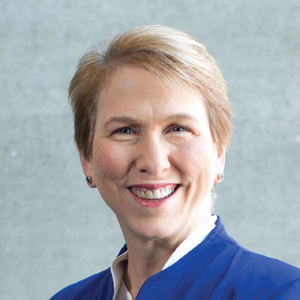In today’s mobile world, diplomacy is a more widely practised art, reaching far beyond royal and political circles.
In the west over the past 70 years, realpolitik has given way to soft power, or soft diplomacy – where the exchange of ideas and collaborative working practice are influencing relations between different nations to their mutual advantage. And it’s on this stage that higher education is taking a central role.
The Fulbright Program that was introduced in the United States in the 1940s, to encourage international educational exchange, was described by Senator James William Fulbright as an opportunity “to bring a little more knowledge, a little more reason, and a little more compassion into world affairs and thereby increase the chance that nations will learn at last to live in peace and friendship”.
Since then student exchange programs have flourished, matched by the growth of international scholarships and the rise of research partnerships across different universities. Some of the results of that international engagement, including the mapping of the human genome, have been truly significant.
Australia’s Minister for Foreign Affairs Julie Bishop spoke candidly about the value of education within the context of foreign policy at an event to mark the New Colombo Plan, a Federal Government initiative which offers Australian undergraduate students scholarships and grants for study and internships in the Indo-Pacific region.
“So often Australia is seen as being very transactional in our approach to Asia, to the Indo-Pacific, and yet here was Australia saying we want to invest for the future by investing in our young people and we trust you and your universities to teach them and we have so much to learn from you,” Minister Bishop said.
“I think it’s that humility that underlines the benefits of this as a foreign policy that should not be overlooked; that we have much to learn from our friends in the region and this New Colombo Plan is evidence of that.
“Students will be making connections with businesses and non-governmental organisations and commercial entities and others in the host country, and the host country will be exposed to young Australians and see them in these real-life situations.”
This year three UniSA students – Mitchell Francis, Michelle Howie and Anthony Randell – have been selected to broaden their skills, education and cultural knowledge in Asia as part the New Colombo Plan.
 UniSA Pro Vice Chancellor (Business and Law), Professor Marie Wilson says the internationalisation of education, within this region of the world, was a consequence of the first Colombo Plan.
UniSA Pro Vice Chancellor (Business and Law), Professor Marie Wilson says the internationalisation of education, within this region of the world, was a consequence of the first Colombo Plan.
“We are talking about the current exchange programs as the second Colombo Plan but in a way they are really the third because the second was the internationalisation of education throughout Australia and New Zealand, particularly into the Asia region,” Prof Wilson says.
“That whole exchange of ideas and the establishment of social networks were the foundation of the first Colombo Plan. That plan ended but it provided the fabric and footing for relationships that have given rise to ongoing exchanges, and even to many universities setting up operations, individually or in partnerships overseas.
“Universities now have more overseas operations in Asia than any private company in Australia or New Zealand and we have more interaction – with employers, students and alumni – often over decades. This is why we are the leading service ‘export’ by far, and a key contributor to Australia’s impact and influence in the region.”
A stocktake of UniSA’s international presence underlines Prof Wilson’s point. With more than 6000 international students, partnerships and agreements with more than 30 countries, joint centres including the China-Australia Centre for Health Science Research, the China-Australia Centre for Sustainable Urban Development, and the Asia-Pacific Centre for Arts and Cultural Leadership and growing collaborations in Japan, Indonesia, Vietnam and more, the University is increasing its educational and research footprint across the Asia-Pacific region.
Prof Wilson says business schools have been at the forefront of the internationalisation of Australian higher education, and central to both the development of the emerging economies and the development of professionals and managers who have become leaders in their communities across Asia.
“That kind of soft power through education has been shifting in recent years,” she says.
“International educational outreach focused initially on undergraduate professional education, but in the last decade that’s increasingly shifting to postgraduate and research education.
“With that comes a much stronger emphasis and reliance on international research links, because the questions that confront Australia are often the same questions that confront other economies.
“The human genome project, for example, sparked international attention not only for its breakthrough science but also for how much groups of scholars could achieve collectively. What the Climate Change Commission has done has been similar; bringing large groups together working from multiple perspectives. I think that’s starting to become the model as people understand that research exchange could build
something much larger and more impactful.
“Getting a collective view and critical mass to do complex research and deal with large data sets is becoming an international priority.”
 UniSA Deputy Vice Chancellor: International and Advancement, Nigel Relph references UniSA and Shandong University’s joint China-Australia Centre for Health Science Research as another example of the potential international collaborations hold.
UniSA Deputy Vice Chancellor: International and Advancement, Nigel Relph references UniSA and Shandong University’s joint China-Australia Centre for Health Science Research as another example of the potential international collaborations hold.
Compare the size of Adelaide’s population of 1.2 million against Shandong province in China with a population of 96.3 million. From sheer scale alone, research outcomes in pharmaceutical sciences, medicine, cell therapy, public and population health will stand to benefit by using data sets from a population that is almost 100 times greater than that found in South Australia’s capital.
International research collaboration is also an investment for the future for Australian universities, according to Relph.
“We have to have really close engagement with Chinese and other Asian universities while we have the opportunity; in 15 years’ time they may well be ahead of Australia, so there is a window of time to do this,” Relph says.
“My hope is that by building ambitious joint research and educational enterprises we can become so embedded that we are part of the fabric. In China and many other Asian countries this comes down to personal relationships – building those partnerships is the most sustainable way of doing things and the purest form of diplomacy.”
Establishing good networks is more important to employment and career progression in Asia than it is in Australia. For students seeking careers in a globalised world, being able to tap into an alumni network and meet those who have taken a similar path has considerable benefits.
“Educating our students to be globally capable means adding connections, creating relevant contacts. It means supporting our graduates who may rely on networks to get employment in Asia rather than in Australia. Remember there are 180,000 UniSA alumni across the world – that is a significant network globally,” Relph says.
“There is a diplomacy function the government can look to through alumni networks as well. This is about building on the affiliation with Australia that characterises our alumni. We can support the State and Federal Governments and their strategies in different countries by helping to mobilise our alumni network to meet their goals.
“It’s just a matter of putting us at the centre of what the government is trying to achieve.”
Although just 24 years old, UniSA has already witnessed several changes in State and Federal Government. As an institution its international partnerships are less likely to be buffeted by political circumstance or high-profile events; while governments come and go, universities have a longevity that can foster enduring relationships.
As an expanding bedrock, with myriad international links, the higher education sector as a whole is not merely an advocate spruiking Australia’s interests abroad, but is increasingly a conduit through which global connections are made, and diplomatic channels are laid.
Find out more about the China-Australia Centre for Health Science Research on its website.